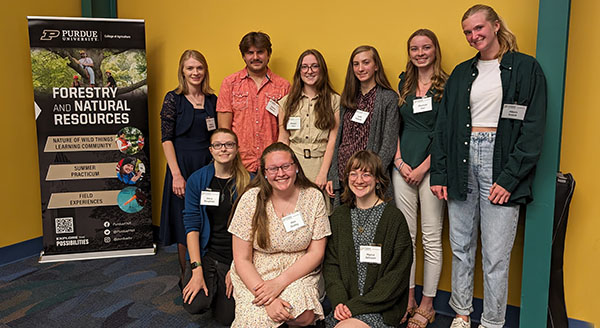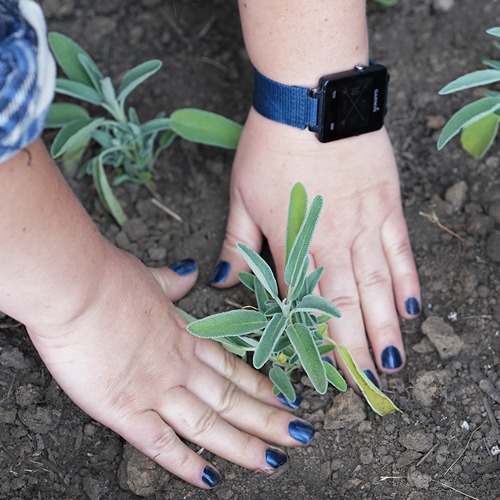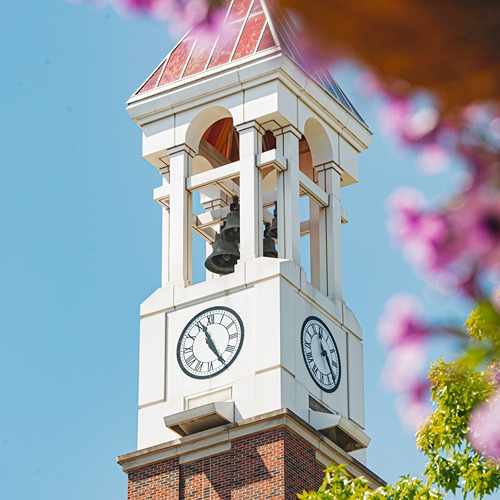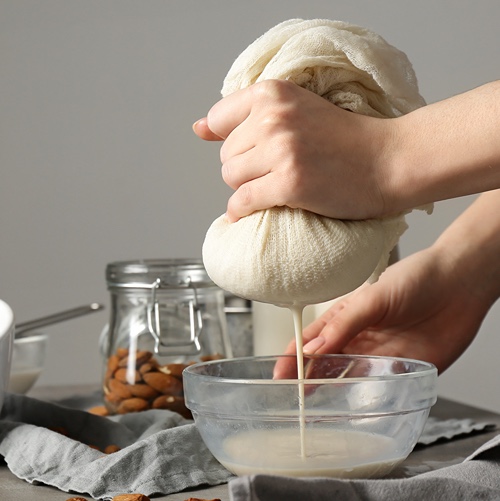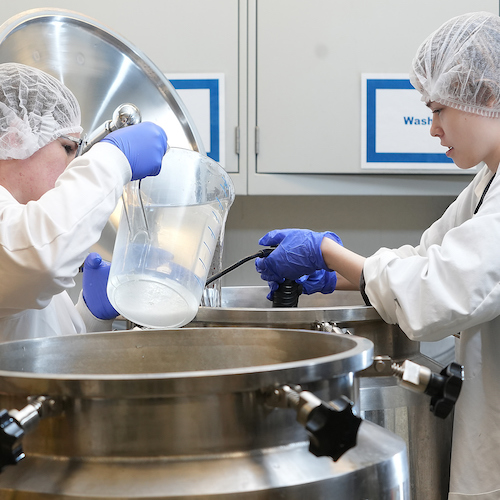In 1919, Indiana stood as the nation’s number one maple syrup producer boasting vast acres of maple forests. Decades of removing trees, however, made the statewide industry move to the back of the line in scale of production.
A $500K Acer Access and Development Program grant, the USDA funded program that supports states’, tribal governments’, and research institutions’ promotion of the domestic maple syrup industry, was recently awarded to Purdue University’s College of Agriculture to move the needle in the other direction.
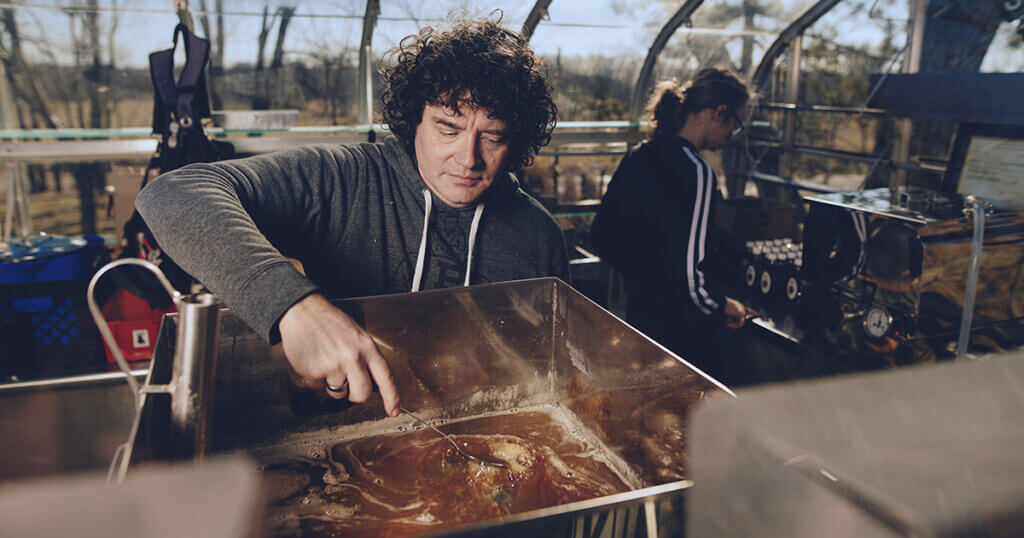 Patrick and Luke McCartney of Locust Farms boiling down maple sugar sap to produce maple syrup
Patrick and Luke McCartney of Locust Farms boiling down maple sugar sap to produce maple syrup Tamara Benjamin, assistant program leader of Diversified Farming and Food Systems, said the university worked with the Indiana Maple Syrup Association to acquire the grant, which will focus on increasing consumption and production of maple syrup through an integrated marketing strategy over a three-year time span.
“Very few farms focus only on maple syrup production in Indiana, but there are many who do produce it as a hobby,” Benjamin said. “But more and more people are coming back to it, finding it to be an additional income stream for their farms."
One hundred years ago when Indiana reigned supreme in production, there were no major maple syrup producers in the state, Indiana Maple Syrup Association president Kevin Hart said. “Rather, there was an abundance of small farms harvesting it as a financial supplement to the winter harvesting lull.
“Back then, maple would have been the sole source for sweetener,” Hart said. “Corn syrup wasn’t around, sugar cane and beet sugar were around but very costly. But maple syrup was very available. The Indiana region had a strong reputation for the flavor and high quality of maple syrup."
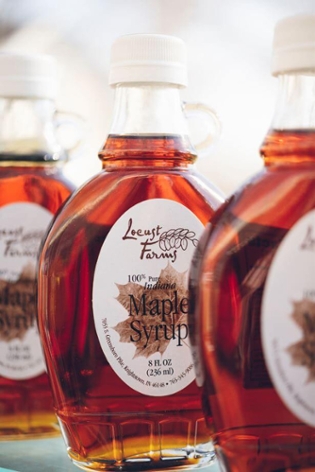
With gradual deforestation over time, the smaller farms disappeared, taking the maple syrup with it, Hart said. But the 1980’s and 1990’s saw a bit of syrup harvesting renaissance
“That’s when some big developments with tubing in the syrup collection process started happening,” he said. “The plastics industry propelled the modern syrup industry to what it is today."
Hart said his 110-acre farm’s 2,000 tapped trees are plumbed together with plastic tubing equipped with UV protection and an incredibly smooth interior to ward off bacteria and mold development.
“I’m just one man, with my kids helping me. But everything comes out of the woods in one spot into a tank, which gets transported to the sugar house with a tractor and transport tank,” he said. “I can collect a day’s worth of sap in roughly 15 minutes.”
With farmers finding maple syrup easier to harvest, Indiana’s industry has started to grow in recent years. In 2020, its production accounted for only 0.6% of USA production, about 24,000 gallons, but those numbers were a 20% increase compared to 2019 numbers.
Benjamin said creating the connection between local consumers and local producers has become crucial in kindling the fire of growth in the Indiana industry.
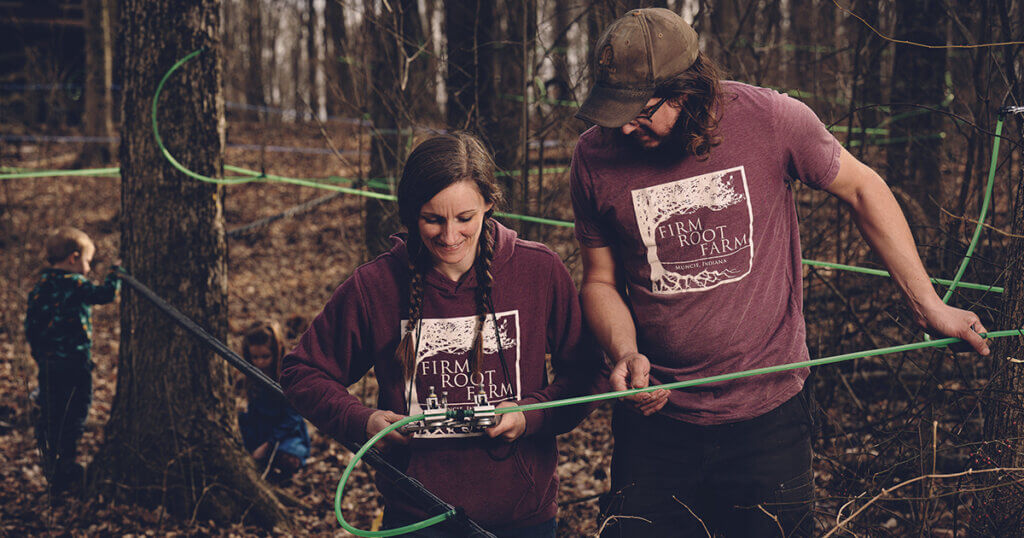 Seth and Kelci Wright, from Firm Root Farm near Muncie, Indiana, working on maple syrup tubing that collects sap water. By using gravity, they are able to collect sap from many trees in one spot, saving on labor to gather from individual bags.
Seth and Kelci Wright, from Firm Root Farm near Muncie, Indiana, working on maple syrup tubing that collects sap water. By using gravity, they are able to collect sap from many trees in one spot, saving on labor to gather from individual bags. “Most people end up going out and buying corn-based syrup over maple syrup. But buying real maple syrup has a direct correlation with the local economy as well as local ecosystems,” Benjamin said. “The U.S.A. has lost 3 billion birds because of a loss of habitat. Some of that is loss of forests and some of those forests are maple trees.”
Benjamin said there are many benefits beyond the influx of a natural, healthy sweetener to be had by the maple syrup industry, such as the conservation of carbon and protecting watersheds. All the benefits will be improved by the Acer grant, which will work to develop stronger marketing for the Indiana Maple Syrup Weekend events along with local products sold in stores and farmer’s markets.
“The overall goal of this grant is to create awareness of Indiana’s industry and increase consumption", Benjamin said.
The Indiana Maple Syrup Weekend will take place March 12-13, offering event goers the opportunity to see the maple syrup making process at one of 15 production facilities around the state. To find a sugar camp near you, go to indianamapleweekend.com.
